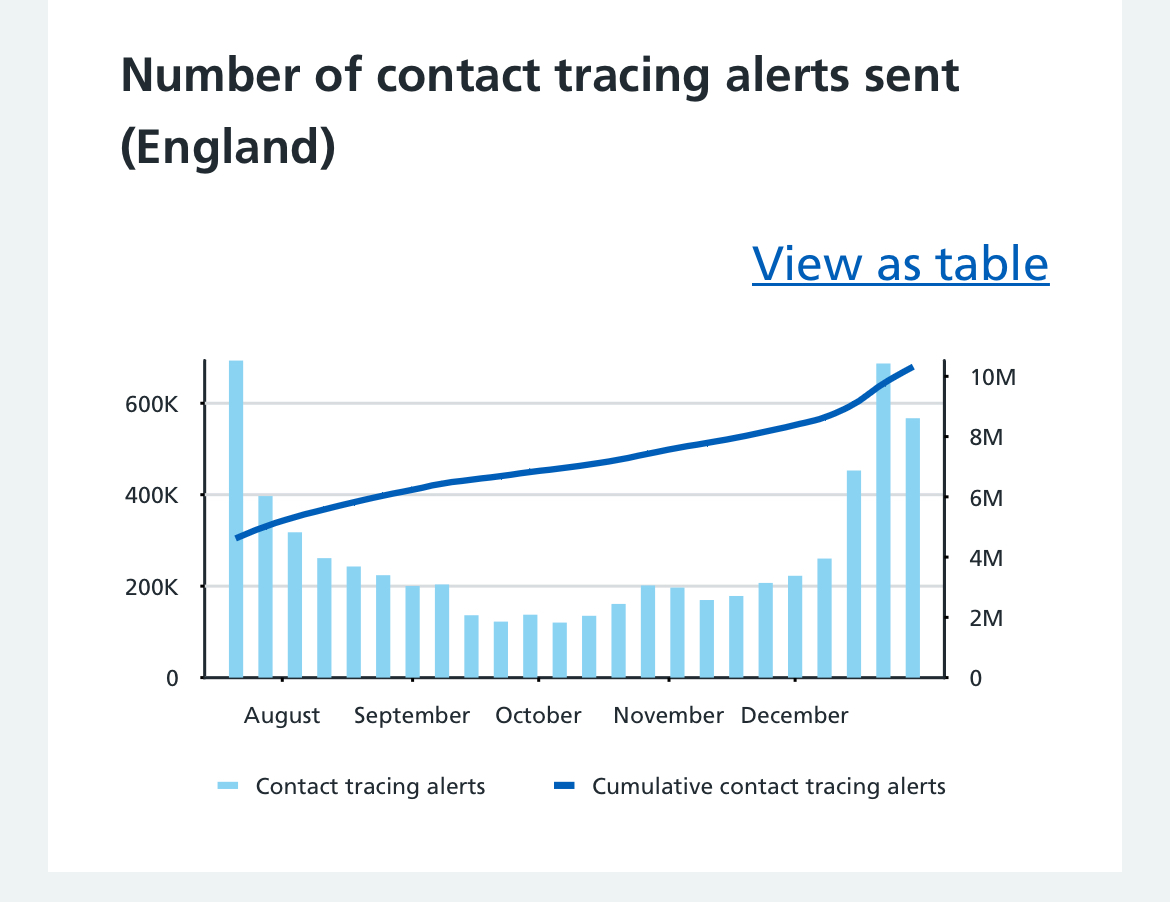The Covid App - record cases, fewer contacts
As you may have noticed, I am a bit obsessed with the weekly statistics on the performance of the NHS Covid-19 app - someone has to be - and the latest set throw up some intriguing questions.
They cover the week from the 23rd to the 29th December and the first thing that struck me was what was missing - a new record for the number of alerts warning people that they had been in contact with someone who later tested positive.
Across England and Wales nearly 600,000 contact tracing alerts were sent out, a big figure but well short of the 698,646 alerts sent the previous week. Given that we know that cases accelerated through the month as the Omicron variant spread, this seemed strange.
But then I looked at the number of positive test results entered in the app, which then trigger the contact tracing alerts. 341,093 positive tests were recorded, smashing the record of 243,406 set in the previous week. In Wales the jump was particularly pronounced, up from 8,492 to 18,687.
What this shows is another fall in the ratio of positive tests to contact alerts triggered. Back during the summer at the height of the “pingdemic” every positive test triggered 4.7 alerts. In these latest figures, that ratio had plunged to 1.7. In other words, it looks as though the phone of every app user that tested positive for Covid had been in contact with fewer than two other contact tracing phones over the previous phones, whereas in the summer they had been up close and personal with nearly five other phones.
So what is going on? I think the figures can be interpreted in two ways. First, it is possible that in the run up to Christmas, as people became concerned about the dangers of Omicron, they began to cut down on going out or socialising. That would mean that they would have been having fewer close contacts - and may indicate that the R number for Omicron is coming down, slowing down the spread of the virus.
But it seems likely that even if people were going out, fewer of their close contacts had the app active on their phones. While a third of a million people entering positive test results in a week does show that a healthy number of people are still using the app, it is pretty clear that many have either deleted it or switched off bluetooth contact tracing. And, given the fact that for months the government has hardly mentioned what was once seen as a key weapon against the virus, maybe that’s not surprising.
On Friday I will be publishing my first interview in a “People of Healthtech” series. It is with a GP who has been a pioneer in using tech for remote consultations - he has some interesting thoughts on what has and hasn’t worked during the pandemic.


